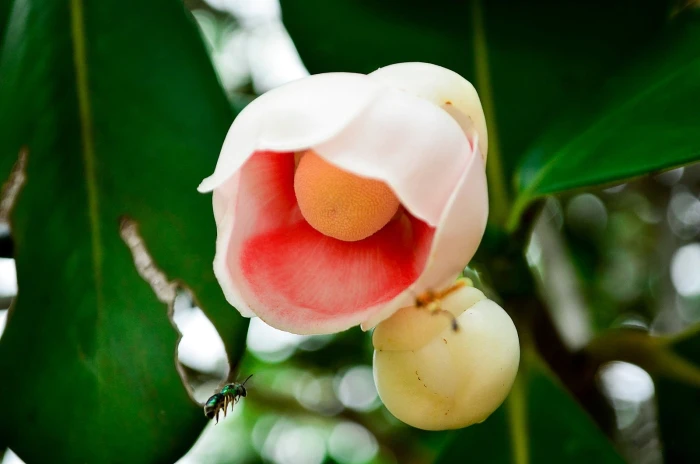Autograph Tree
(Clusia hilariana)
Autograph Tree (Clusia hilariana)
/
/

Joaquim Gasparini
CC BY-SA 3.0
Image By:
Joaquim Gasparini
Recorded By:
Copyright:
CC BY-SA 3.0
Copyright Notice:
Photo by: Joaquim Gasparini | License Type: CC BY-SA 3.0 | License URL: https://creativecommons.org/licenses/by-sa/2.0 | Uploader: Joaquim Gasparini | Publisher: Wikimedia Commons |




Estimated Native Range
Climate Requirements for Oceanside, New York
| This Plant | Your Site | Plant Suitability for Your Location | ||
|---|---|---|---|---|
| • Precipitation | 23" - 94" | 42" | Aquatic | Aquatic |
| • High Temp. | 73°F - 117°F | 83°F | Your summer temperatures are normal for this plant. | Excellent |
| • Low Temp. | 43°F - 71°F | 25°F | Your winter temperatures may be too cold for this plant | Too cold |
This plant should grow well at your location with about N inches per year (Y minutes per month) of irrigation.
Summary
Clusia hilariana, commonly known as Autograph Tree, is an evergreen tree or shrub native to the Atlantic Forest biome in Central and Southeastern Brazil, where it thrives in a variety of habitats including coastal forests, rocky outcrops, and sandy soils. It typically reaches a height of 12-23 feet (4-7 meters) and a width of 9-17 feet (2.7-5.2 meters). The Autograph Tree is notable for its thick, leathery leaves that are often inscribed with names or messages, which remain visible for a long time. It produces showy pink and white flowers during the summer, which are followed by interesting green fruits that turn brown when ripe.
The Autograph Tree is valued for its ornamental qualities, including its unique foliage and attractive flowers. It is used in tropical and subtropical landscapes for urban planting, as a specimen plant, or for creating hedges. This species is adaptable to a range of light conditions, from full sun to part shade, and requires low amounts of water once established, making it suitable for xeriscaping. It prefers well-drained soils and is tolerant of salt spray, which makes it a good choice for coastal areas. However, gardeners should be aware that it can become invasive in some regions, such as Florida, where it has escaped cultivation and naturalized in some areas.CC BY-SA 4.0
The Autograph Tree is valued for its ornamental qualities, including its unique foliage and attractive flowers. It is used in tropical and subtropical landscapes for urban planting, as a specimen plant, or for creating hedges. This species is adaptable to a range of light conditions, from full sun to part shade, and requires low amounts of water once established, making it suitable for xeriscaping. It prefers well-drained soils and is tolerant of salt spray, which makes it a good choice for coastal areas. However, gardeners should be aware that it can become invasive in some regions, such as Florida, where it has escaped cultivation and naturalized in some areas.CC BY-SA 4.0
Plant Description
- Plant Type: Tree, Shrub
- Height: 12-23 feet
- Width: 9-17 feet
- Growth Rate: Moderate
- Flower Color: Pink, White
- Flowering Season: Summer
- Leaf Retention: Evergreen
Growth Requirements
- Sun: Full Sun, Part Shade
- Water: Low
- Drainage: Fast
Common Uses
Border Plant, Low Maintenance, Potted Plant, Rock Garden
Natural Habitat
Atlantic Forest biome in Central and Southeastern Brazil
Other Names
Common Names: Scotch Attorney, Balsam Apple, Balsam Fig, Fat Park Tree, Pitch Apple, Scotch-Attorney, Copey, Cupey, Star Of Night
Scientific Names: Clusia hilariana
GBIF Accepted Name: Clusia hilariana Schltdl.